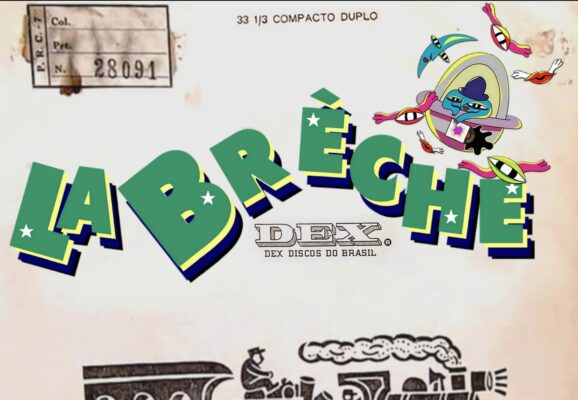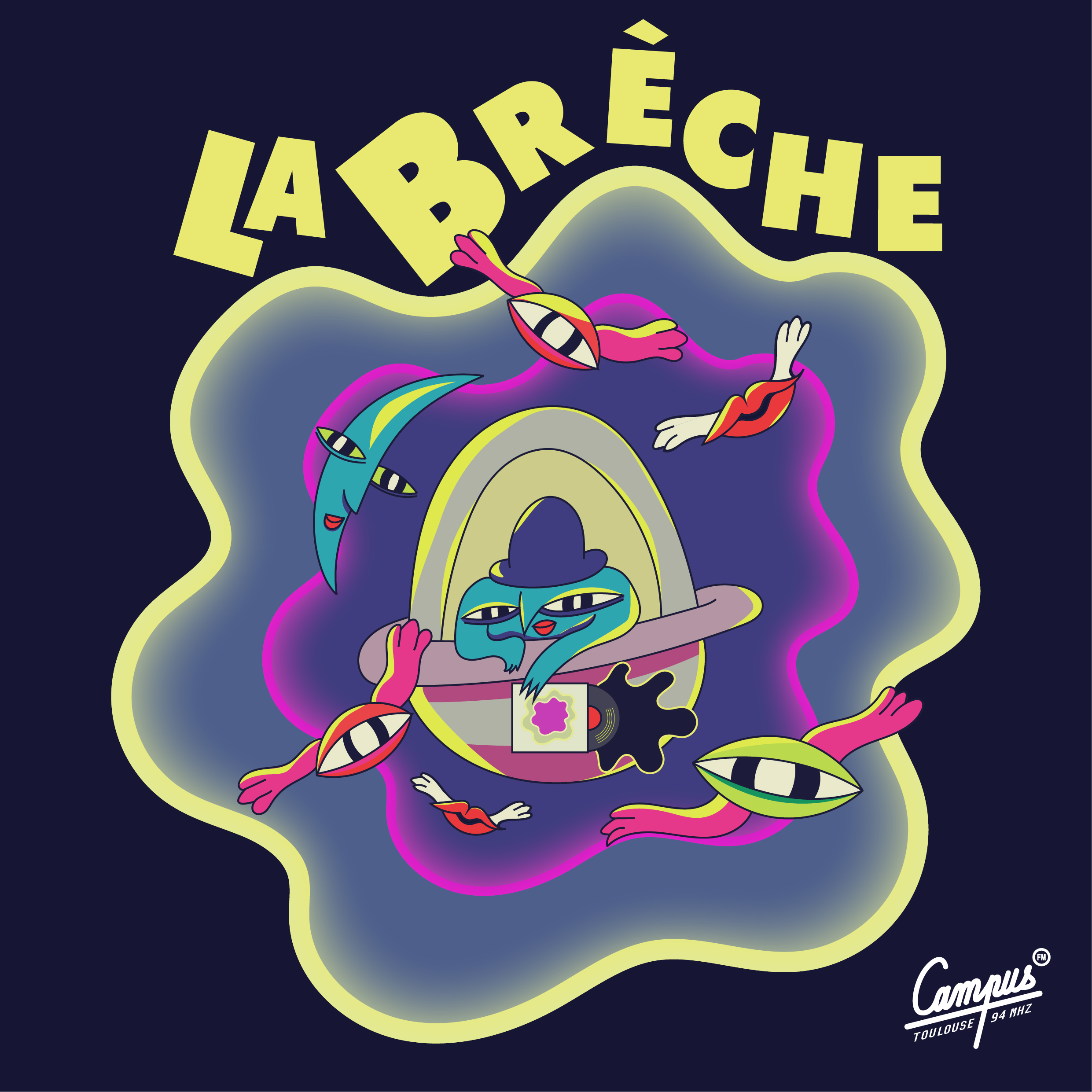Allez, mon peuple
Venez vite, à la gare,
Voir le train
Arriver !
C’est le jour de la fête
Et la ville se pare, à voir
Le train !
(Milton Nascimento, Três Pontes, Album travessia, 1967)
4ème volet des émissions sur le brésil. Dans cette La brèche #35, on va se pencher sur les années 60, notamment fin 60 et début 70-71, en s’axant sur quelques artistes en particuliers, sur lesquels j’ai déjà pas mal parlé dans les anciennes émissions, à savoir Milton Nascimento, Tuca, Dorinha Tapajos, Hermeto Pascoal, certains artistes du mouvement Tropicalia, ou encore les arrangeurs Luiz Eça et Arthur Verocai. Dans cette émission, les dates ont leur importance. On observe de grands changements au tournant des années 60 et 70. Changement sonore dû à l’ouverture au monde, à l’influence de l’Europe, changements politiques, révolte face à l a dictature militaire (1964-1985). C’est néanmoins dans cette période difficile pour le Brésil que l’on trouve, selon moi, les plus belles chansons de l’histoire de la musique. C’est peut-être que ces dans ces durs moments qu’apparaissent les plus beau gemmes musicaux, les élans, ou les explosions poétiques. Je vais essayer de vous en faire entrevoir l’ampleur ici !
Au début, j’ai trouvé difficile de devoir se renouveler après 3 émissions c’est a dire presque 5h de show sur la musique populaire brésilienne. Il était difficile de ne pas remettre trop souvent les mêmes artistes. Mais, j’ai récemment compris que si je veux parler de la musique brésilienne, il faut se répéter, il faut insister sur certains noms. Car, même si cet univers est vaste, on revient souvent aux mêmes choses, aux mêmes volontés. Au brésil, la musique est extrêmement prise au sérieux, et il arrive souvent de retrouver les mêmes chansons, devenues des standards, dans les albums brésiliens. Ces chansons, hautement poétiques, résonnent en toutes et en tous, et sont récupérées, appropriés, remodelées à la sauce de chacun et chacune. Elles sont une part de „l’âme brésilienne“. Aussi, la place de l’arrangeur, des producteurs, ou des musiciens accompagnants est rarement négligée. On va essayer de parler de tout ça dans cette émission, ces chansons devenues des gemmes, des trésors poétiques et sonores que les Brésiliens n’ont jamais cessé de faire résonner, à la manière de mineurs, qui creuse cette magnifique mine d’or qu’est la chanson brésilienne !
Cerner la MPB est une entreprise vaine, tant ses courants présentent une richesse d’influences. Héritage des cultures amérindienne, africaine et européenne, la musique populaire brésilienne digère ses multiples racines pour en faire émerger une identité propre, métissée. Elle rend surtout la parole aux Brésiliens, notamment lors des années de dictature (1964-1984), invitant celui qui l’écoute à entendre cette histoire collective turbulente et à prendre parti pour plus de démocratie.
Come on, my people
Come quickly, to the station,
See the train
Arrive!
It’s the day of the party
And the city adorns itself, to see
The train !
(Milton Nascimento, Três Pontes, Album travessia, 1967)
4th part of the programs on Brazil. In this La brèche #35, we are going to look at the 60s, in particular the end of the 60s and the beginning of 70-71, focusing on a few artists in particular, about whom I have already spoken quite a bit in the old shows, namely Milton Nascimento, Tuca, Dorinha Tapajos, Hermeto Pascoal, certain artists of the Tropicalia movement, or even the arrangers Luiz Eça and Arthur Verocai. In this show, dates matter. We observe great changes at the turn of the 60s and 70s. Sound change due to the opening to the world, to the influence of Europe, political changes, revolt against the military dictatorship (1964-1985). Nevertheless, it’s in this difficult period for Brazil that we find, in my opinion, the most beautiful songs in the history of music. It is perhaps in these hard times that the most beautiful musical gems appear, the impulses, or the poetic explosions. I will try to give you a glimpse of the magnitude here!
At the beginning, I found it difficult to have to renew after 3 shows, it’s almost 6h hours of show on Brazilian popular music. It was hard not to put the same artists back too often. But, I recently understood that if I want to talk about Brazilian music, you have to repeat yourself, you have to insist on certain names. Because, even if this universe is vast, we often come back to the same things, to the same desires. In Brazil, music is taken extremely seriously, and it often happens to find the same songs, which have become standards, in Brazilian albums. These songs, highly poetic, resonate in everyone, and are recovered, appropriated, remodeled in the sauce of each and everyone. They are part of the „Brazilian soul“. Also, the place of the arranger, producers, or accompanying musicians is rarely neglected. We’re going to try to talk about all that on this show, these songs that have become gems, poetic and sonic treasures that the Brazilians Nunca have never stopped making resonate, like miners, who dig this magnificent gold mine that is the Brazilian song !
Identifying the MPB is a futile undertaking, as its currents present a wealth of influences. Heritage of Amerindian, African and European cultures, Brazilian popular music digests its multiple roots to bring out its own, mixed identity. Above all, it gives voice to Brazilians, especially during the years of dictatorship, inviting those who listen to it to hear this turbulent collective history and to take sides for more democracy.
#radioshow #musicshow #labreche #campusfm #radiohelsinki #brazilian #gems #mpb #mpbrasil #mpbbrasil #music #60s #nuggets




















